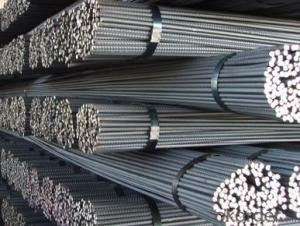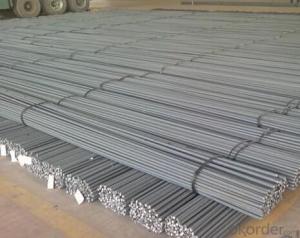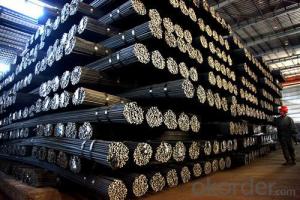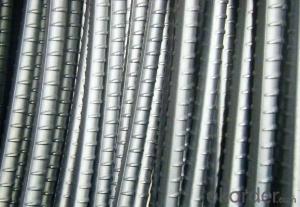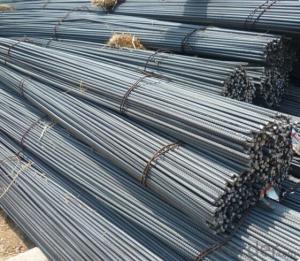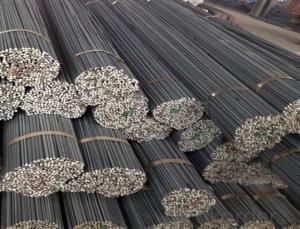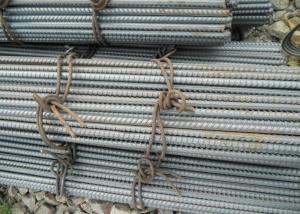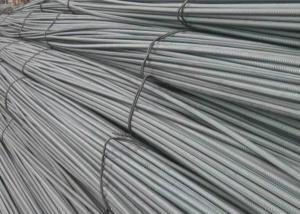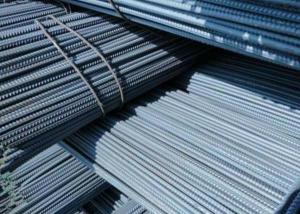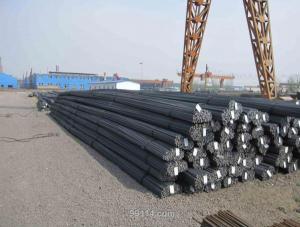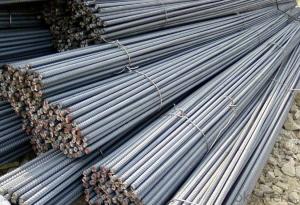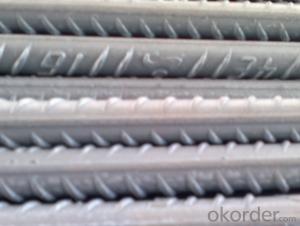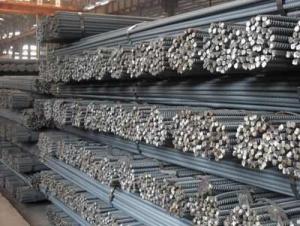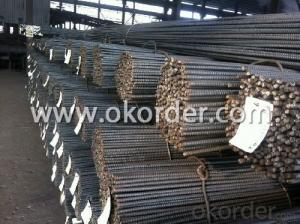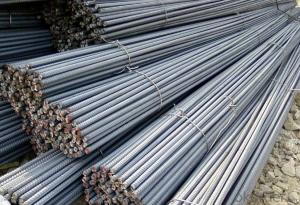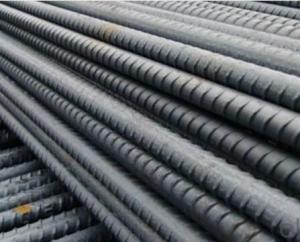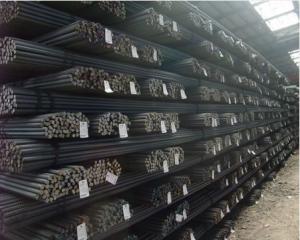Reinforcement Steel Rebar Turkey/Steel Reinforcement
- Loading Port:
- Tianjin
- Payment Terms:
- TT OR LC
- Min Order Qty:
- 100 m.t.
- Supply Capability:
- 10000 m.t./month
OKorder Service Pledge
Quality Product, Order Online Tracking, Timely Delivery
OKorder Financial Service
Credit Rating, Credit Services, Credit Purchasing
You Might Also Like
Item specifice
Standard:
AISI,JIS,GB,BS,DIN,API,EN,ASTM
Technique:
Hot Rolled,Cold Rolled,Cold Drawn,ERW,Forged,Saw,Extruded,EFW,Spring
Shape:
Round,U Channel,Square,C Channel,Hexagonal,Rectangular,Oval,LTZ
Surface Treatment:
Galvanized,Coated,Copper Coated,Color Coated,Oiled,Dry,Chromed Passivation,Polished,Bright,Black,PVDF Coated
Steel Grade:
Q195,Q215,Q235,Q215B,Q235B,RHB335,HRB400,200 Series,300 Series,400 Series,600 Series,SS400-SS490,10#,20#,A53(A,B)
Certification:
ISO,SGS,BV,IBR,RoHS,CE,API,BSI,UL
Thickness:
6-34mm
Width:
6-34mm
Length:
12m
Outer Diameter:
6-34mm
Net Weight:
10kg
Packaging:
seaworthy packaging
Reinforcement Steel Rebar Turkey/Steel Reinforcement
Details of the Reinforcement Steel Rebar Turkey/Steel Reinforcement
| Standard & Grade: | GB1499-98 : HRB335,HRB400,HRB500 |
| BS4449-1997 : GR460,GR500 | |
| CAN/CSA-G30.18-M92 : 400W | |
| ASTM A615 : Gr.40, Gr.60 | |
| Diameter: | 6mm;8mm;10mm;12mm;14mm;16mm;18mm;20mm;22mm;25mm;28mm;30mm;32mm;35mm;40mm |
| Length: | 6m,9m,12m |
| Packing: | Bundle packing |
| Origin: | China |
| Application: | Construction,Road,Machinery processing,Welding fields. |
| Delivery time: | 10-25 days |
| Shipment: | By bulk vessel or Container |
| Documents: | Mill Test Certificate,Commercial Invoice,Packing List,Certificate of Origin |
Company Introduction of the Reinforcement Steel Rebar Turkey/Steel Reinforcement
CNBM International Corporation is the most import and export platform of CNBM group(China National Building Material Group Corporation) ,which is a state-owned enterprise, ranked in 270th of Fortune Global 500 in 2015.
With its advantages, CNBM International are mainly concentrate on Cement, Glass, Iron and Steel, Ceramics industries and devotes herself for supplying high quality series of refractories as well as technical consultancies and logistics solution.
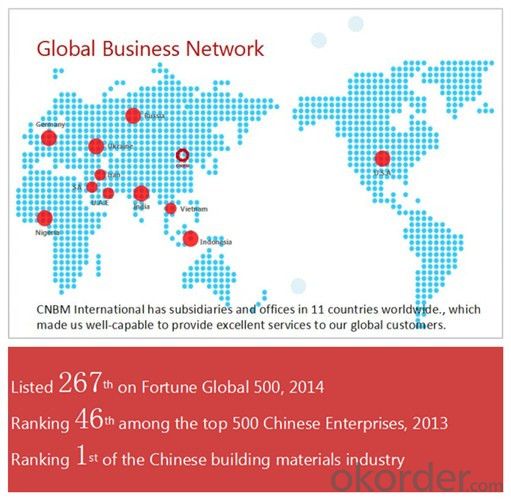
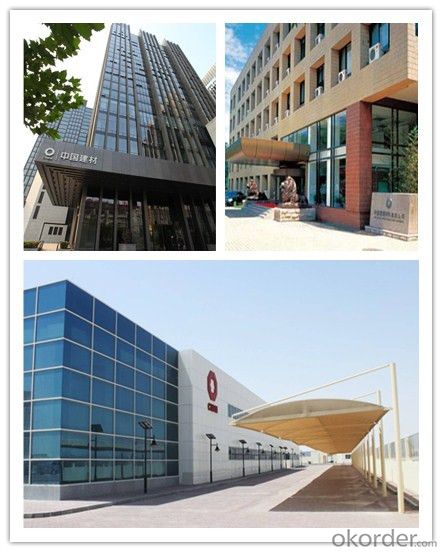
Packaging & Delivery of the Reinforcement Steel Rebar Turkey/Steel Reinforcement
| Packaging Detail | Sea worthy packing /as per customer's packing instruction |
| Delivery Detail | 15 ~ 40 days after receiving the deposit |
FAQ
| Are you a trading company or manufacturer? | Manufacturer |
| What’s the MOQ? | 1000m2 |
| What’s your delivery time? | 15-20 days after downpayment received |
| Do you Accept OEM service? | Yes |
| what’s your delivery terms? | FOB/CFR/CIF |
| What's the Payment Terms? | 30% as deposit,70% before shipment by T/T |
| Western Union acceptable for small amount. | |
| L/C acceptable for large amount. | |
| Scrow ,Paybal,Alipay are also ok | |
| Why choose us? | Chose happens because of quality, then price, We can give you both. Additionally, we can also offer professional products inquiry, products knowledge train (for agents), smooth goods delivery, excellent customer solution proposals. |
| What's your available port of Shipment? | Main Port, China |
| What’s your featured services? | Our service formula: good quality+ good price+ good service=customer's trust |
| Where are your Market? | Covering more than 160 countries in the world |
- Q:Can steel rebars be used in water treatment facilities?
- Yes, steel rebars can be used in water treatment facilities. Steel rebars, or reinforcing bars, are commonly used in construction projects to strengthen concrete structures. In water treatment facilities, where concrete is used for various structures such as tanks, basins, and pipelines, steel rebars are often incorporated to provide added strength and durability. Water treatment facilities involve the treatment of water to make it safe for consumption or other purposes. Concrete is a preferred material in these facilities due to its ability to withstand the harsh conditions of water treatment processes, such as exposure to chemicals, high temperatures, and pressure. Steel rebars are essential in reinforcing the concrete structures to ensure they can withstand these demanding conditions. The corrosion resistance of steel rebars is a critical factor to consider when using them in water treatment facilities. Since water treatment facilities often involve the use of chemicals and exposure to moisture, it is important to choose rebars that have appropriate corrosion protection. This can be achieved by using stainless steel rebars or by applying protective coatings to the rebars. It is also worth noting that proper design, construction, and maintenance practices are essential in ensuring the long-term performance of steel rebars in water treatment facilities. Adequate cover thickness, concrete quality, and proper installation techniques are important considerations to prevent corrosion and ensure the rebars provide the desired structural integrity. In conclusion, steel rebars can be effectively used in water treatment facilities to reinforce concrete structures and provide the necessary strength and durability. However, it is important to choose corrosion-resistant rebars and adhere to proper design and construction practices to ensure their long-term performance in these facilities.
- Q:Can steel rebars be used in railway and transportation infrastructure?
- Yes, steel rebars can be used in railway and transportation infrastructure projects. Steel rebars are commonly used in the construction of bridges, tunnels, and other transportation-related structures due to their high strength, durability, and ability to withstand heavy loads. They provide structural reinforcement and enhance the overall stability and longevity of railway and transportation infrastructure.
- Q:Are steel rebars suitable for use in historical restoration projects?
- Steel rebars can be suitable for use in historical restoration projects, depending on the specific requirements and circumstances. Steel rebars offer several advantages, such as their high strength, durability, and ability to reinforce structures effectively. These qualities make them a popular choice in modern construction and renovation projects. However, when considering the use of steel rebars in historical restoration projects, it is crucial to take into account the preservation and authenticity of the original structure. Historical buildings often have unique architectural features and materials that should be respected and preserved. In some cases, the use of steel rebars may not be suitable, especially if it compromises the historical integrity or visual appearance of the structure. This is particularly relevant for buildings with significant historical value or those that are protected by heritage regulations. If steel rebars are deemed necessary for structural reinforcement in a historical restoration project, it is essential to ensure that they are discreetly integrated, minimizing their visual impact. This can be achieved by concealing them within the original materials or using techniques that replicate the appearance of the original construction. In summary, while steel rebars can offer structural benefits and durability, their use in historical restoration projects should be carefully evaluated to ensure that they align with the preservation goals and requirements of the specific project. Preservation of historical authenticity should always be a priority in such endeavors.
- Q:Can steel rebars be used in precast or prestressed concrete?
- Yes, steel rebars can be used in precast or prestressed concrete. Steel rebars, also known as reinforcing bars, are commonly used in precast and prestressed concrete structures to provide additional strength and durability. The rebars are typically placed within the concrete matrix to withstand tensile forces that may be encountered during the service life of the structure. The use of steel rebars helps to enhance the structural integrity and load-bearing capacity of the precast or prestressed concrete components, making them capable of withstanding higher loads and minimizing the risk of failure. Additionally, steel rebars also facilitate the transfer of stresses between different parts of the precast or prestressed concrete elements, ensuring a more uniform distribution of forces and enhancing the overall performance of the structure. Therefore, steel rebars are commonly used in precast and prestressed concrete construction to improve the structural characteristics and longevity of the finished product.
- Q:How do steel rebars contribute to the load-bearing capacity of concrete slabs?
- The load-bearing capacity of concrete slabs is improved through various mechanisms by steel rebars. Firstly, they increase the tensile strength of the concrete. While concrete is renowned for its compressive strength, it lacks the ability to resist tensile forces. By incorporating steel rebars into the concrete, a reinforced structure is formed, capable of withstanding both compressive and tensile stresses. This effectively prevents the concrete from cracking or failing when subjected to heavy loads. Secondly, steel rebars aid in the even distribution of loads across the concrete slab. When a load is applied to the slab, it tends to concentrate at specific points, leading to stress concentrations. However, the presence of rebars facilitates the spreading of the load over a larger area, reducing stress on individual points and enhancing the overall load-bearing capacity of the slab. Additionally, steel rebars serve as a barrier against crack propagation in concrete slabs. If a crack occurs, the rebars act as reinforcement, holding the cracked sections together and preventing the crack from expanding further. This ensures the structural integrity of the slab is maintained, safeguarding its load-bearing capacity. In conclusion, steel rebars are indispensable in bolstering the load-bearing capacity of concrete slabs. They provide tensile strength, ensure even load distribution, and inhibit crack propagation. By incorporating rebars, the durability and ability of concrete structures to withstand heavy loads are significantly improved, making them indispensable components in construction projects.
- Q:Can steel rebars be used in extreme weather conditions?
- Yes, steel rebars can be used in extreme weather conditions. Steel is known for its durability and tensile strength, making it suitable for withstanding harsh weather conditions such as high winds, extreme temperatures, and heavy rainfall. Additionally, steel rebars are corrosion-resistant, reducing the risk of rusting and deterioration in adverse weather conditions. Overall, steel rebars are a reliable choice for construction projects in extreme weather conditions.
- Q:What is the effect of steel rebars on the weight of a structure?
- Steel rebars have a notable impact on the weight of a structure. Typically composed of steel, these reinforcement bars possess a high strength-to-weight ratio. When integrated into a structure, they bestow strength and rigidity without significantly augmenting the overall weight. By reinforcing concrete with steel rebars, the structure becomes more capable of withstanding diverse forces and stresses, including tension, compression, bending, and shearing. This reinforcement empowers the structure to bear heavier loads and elevates its durability and longevity. While steel rebars confer strength to the structure, they do not make a considerable contribution to its weight. Consequently, this is advantageous as it facilitates the construction of lighter and more efficient structures. The reduced weight presents several benefits, such as lower construction expenses, diminished material requirements, decreased transportation costs, and improved seismic performance. Furthermore, the utilization of steel rebars also permits the construction of slimmer and visually pleasing structures. The heightened strength provided by the rebars allows for the employment of thinner concrete sections, leading to sleek designs and more open spaces. In conclusion, the effect of steel rebars on the weight of a structure is minimal. Instead, their principal role lies in enhancing the structural integrity, strength, and durability of the edifice without burdening it with excessive weight.
- Q:How do steel rebars affect the workability of concrete?
- Concrete workability can be significantly impacted by the presence of steel rebars. Initially, steel rebars in concrete contribute to increased strength and structural integrity. They act as reinforcement by absorbing and redistributing tensile forces, preventing cracking or collapsing under load. However, the addition of steel rebars also has various effects on concrete workability. Firstly, it reduces the workability or slump of the concrete mix. Consequently, the concrete becomes less fluid and more challenging to handle, particularly during pouring and placement. The rebars create obstacles and impede the flow of concrete, demanding greater effort to properly place and compact the mixture. Moreover, steel rebars can lead to issues such as segregation and segregation of concrete. Segregation arises when the heavier rebars cause the aggregate to settle at the bottom, resulting in an uneven distribution of components in the mixture. This can negatively impact the concrete's strength and durability. Additionally, ensuring proper bond between the steel and concrete may require additional measures. Adequate cover depth and correct placement of rebars are crucial to fully embed the rebars in the concrete, providing the necessary reinforcement. Failing to achieve a proper bond can jeopardize the concrete's strength and structural integrity. In conclusion, steel rebars have both positive and negative effects on concrete workability. While they enhance the strength and durability of the concrete, they also reduce its workability and require additional considerations during the mixing and placement process. Effective planning and execution are necessary to incorporate the rebars efficiently without hindering the overall workability and performance of the concrete.
- Q:Can steel rebars be used in the construction of power plants or industrial facilities?
- Steel rebars can be utilized in the construction of power plants and industrial facilities due to their exceptional strength and durability. They are an ideal option for reinforcing concrete structures in these types of facilities. With their ability to provide necessary strength and support, they can withstand heavy loads, vibrations, and extreme temperatures that are frequently encountered in power plants and industrial facilities. Moreover, steel rebars possess resistance to corrosion, which is particularly vital in such environments where exposure to moisture, chemicals, and other harsh elements is commonplace. Consequently, steel rebars are widely employed in the construction of power plants and industrial facilities to guarantee the buildings' structural integrity and long-lasting nature.
- Q:Can steel rebars be used in precast or prestressed concrete?
- Yes, steel rebars can be used in both precast and prestressed concrete. Rebars are commonly used in these construction methods to provide reinforcement and enhance the strength and durability of the concrete structures.
1. Manufacturer Overview |
|
|---|---|
| Location | |
| Year Established | |
| Annual Output Value | |
| Main Markets | |
| Company Certifications | |
2. Manufacturer Certificates |
|
|---|---|
| a) Certification Name | |
| Range | |
| Reference | |
| Validity Period | |
3. Manufacturer Capability |
|
|---|---|
| a)Trade Capacity | |
| Nearest Port | |
| Export Percentage | |
| No.of Employees in Trade Department | |
| Language Spoken: | |
| b)Factory Information | |
| Factory Size: | |
| No. of Production Lines | |
| Contract Manufacturing | |
| Product Price Range | |
Send your message to us
Reinforcement Steel Rebar Turkey/Steel Reinforcement
- Loading Port:
- Tianjin
- Payment Terms:
- TT OR LC
- Min Order Qty:
- 100 m.t.
- Supply Capability:
- 10000 m.t./month
OKorder Service Pledge
Quality Product, Order Online Tracking, Timely Delivery
OKorder Financial Service
Credit Rating, Credit Services, Credit Purchasing
Similar products
New products
Hot products
Hot Searches
Related keywords
